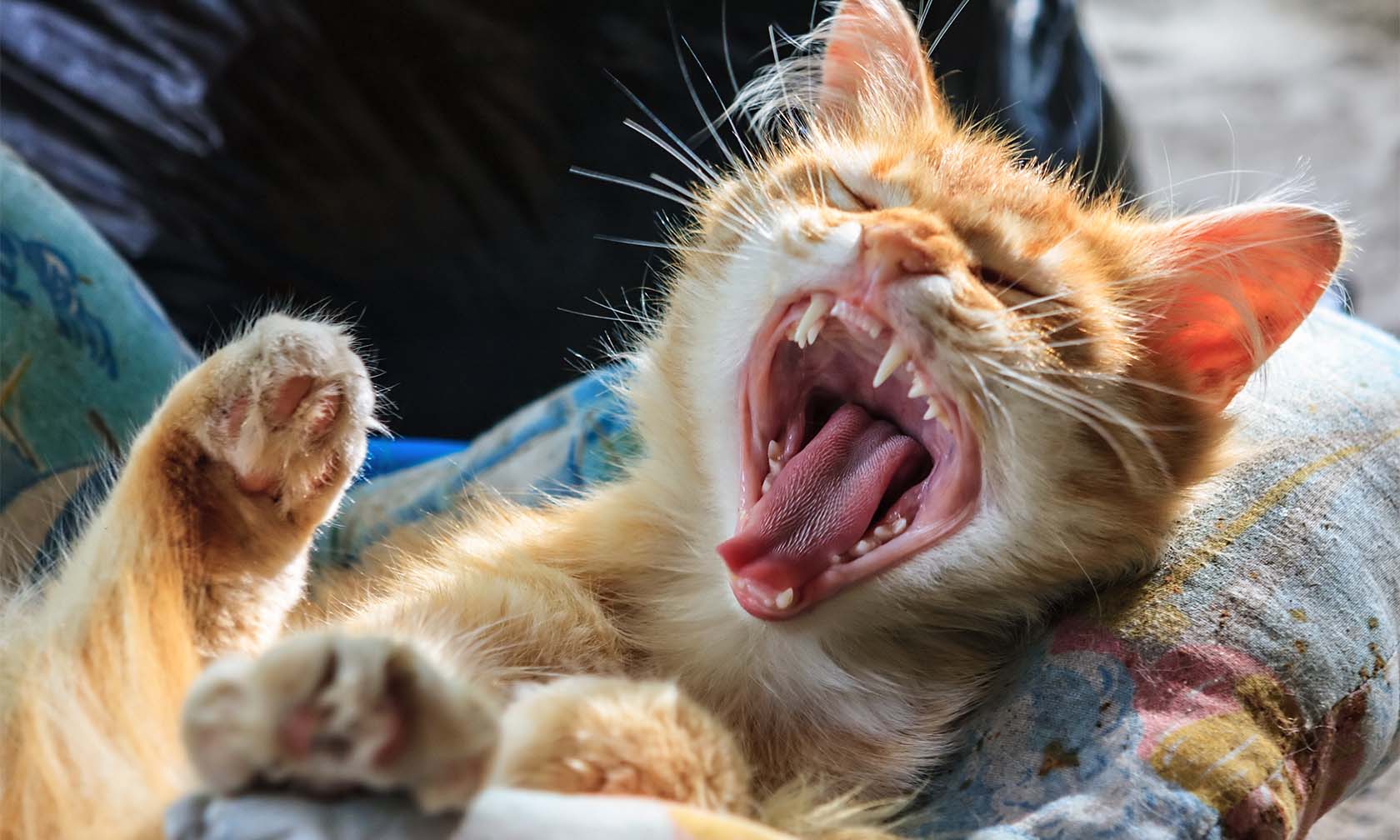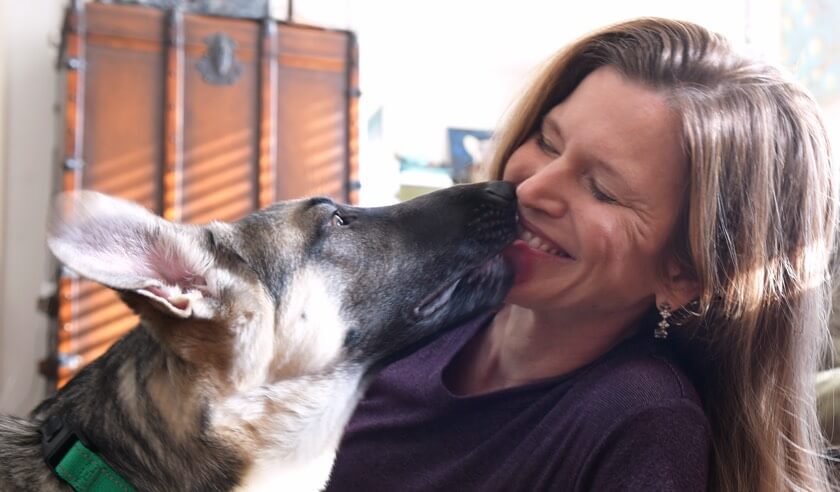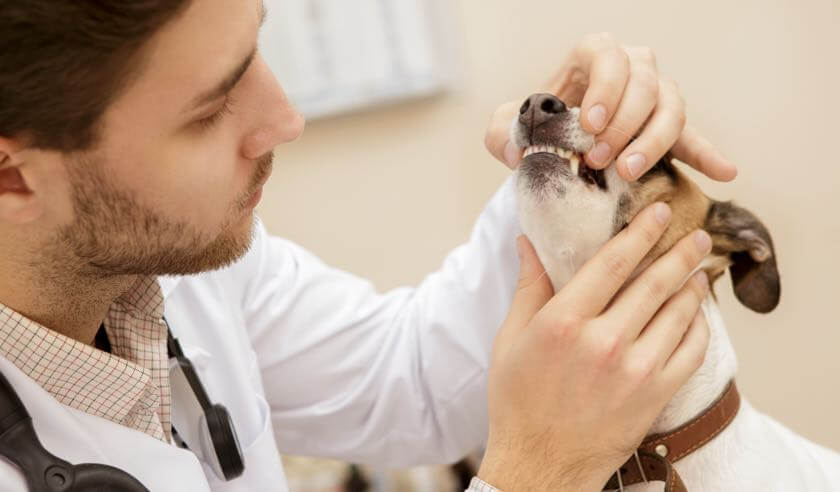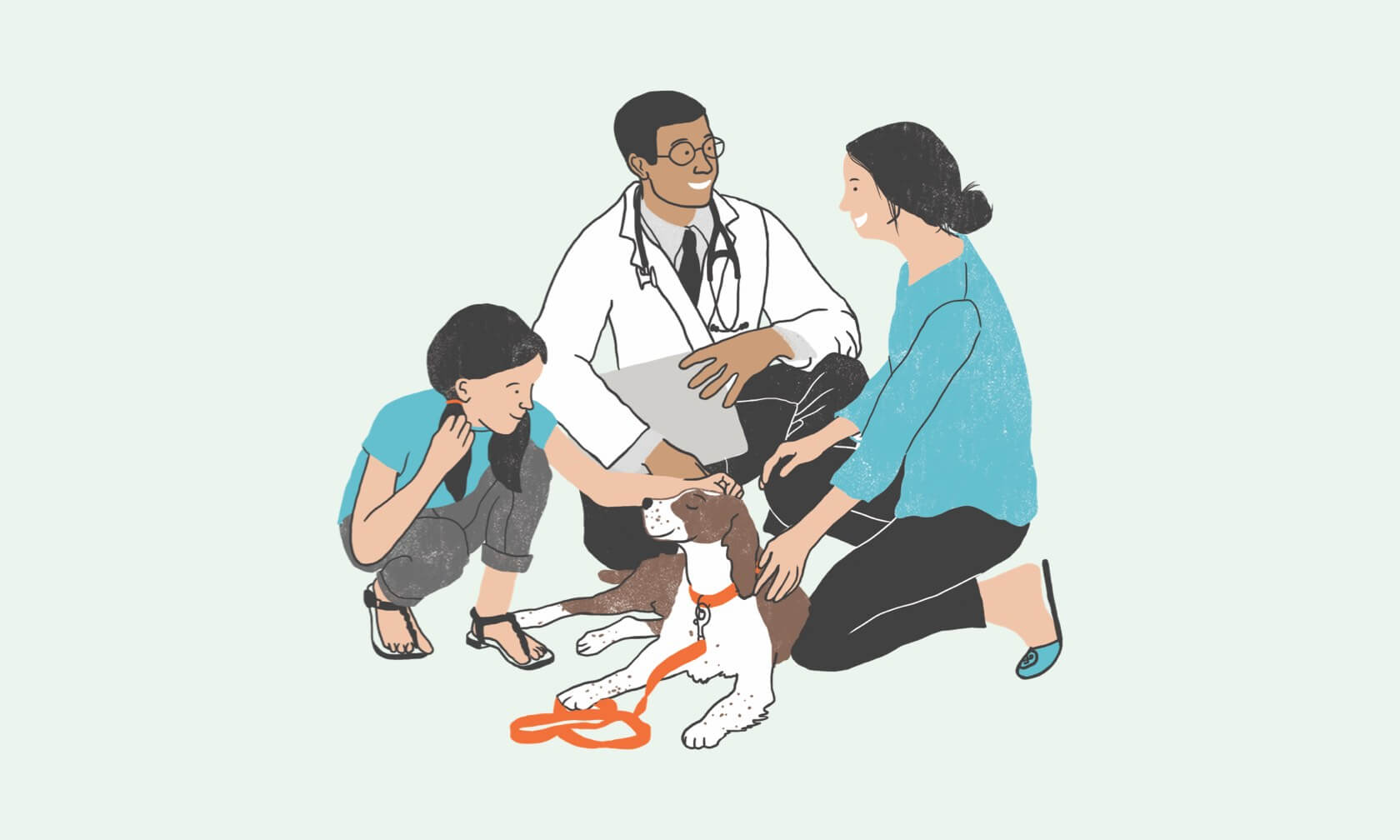When it comes to keeping pets healthy and happy, many owners don’t think about their pet’s teeth as much as they should. A pet’s oral health (teeth, gums, and other parts of the mouth) plays a vital role in their overall health and quality of life. That’s why good dental care is essential for a pet (not to mention that a healthy mouth means more kisses without the dreaded bad breath).
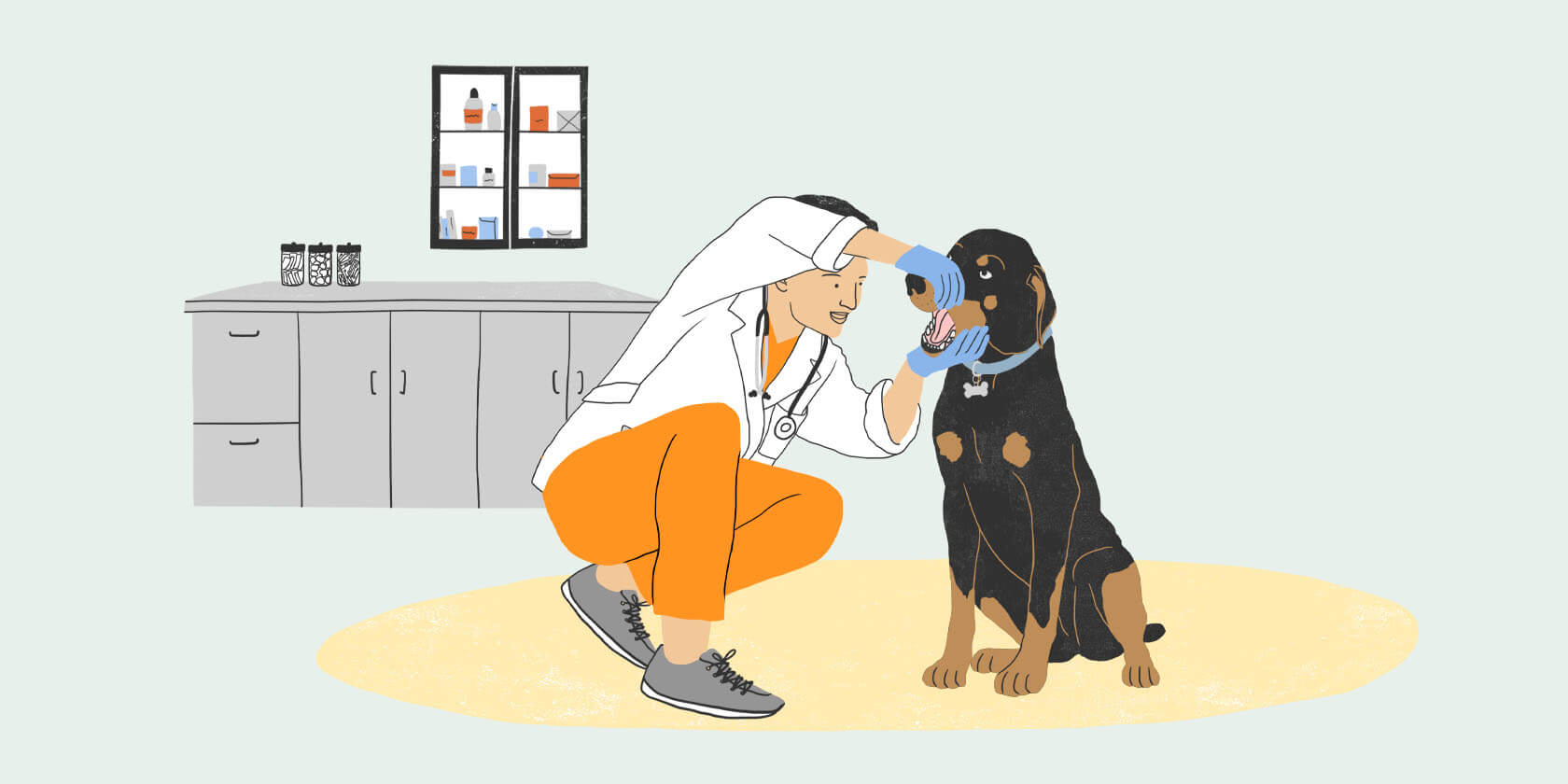
Why Your Dog or Cat Needs Regular Dental Care
Preventing or treating bad breath is certainly a big reason to get your pet in regularly for professional dental exams and cleanings. But the importance of caring for their teeth goes far beyond stinky breath. Over time pets can develop dental problems that cause inflammation and damage, which can lead to pain and loss of appetite. Untreated dental problems can result in serious complications like infection, abscess, tooth loss, bone decay around the teeth, and even fractures of the jaw. In the long run, treating these complications can end up costing a lot more than you might think you’d save by skipping regular dental cleanings.
In fact, periodontal disease (disease of the gums and tissues surrounding the teeth, often what people mean when they say dental disease) is very common in pets. As many as 80% of dogs and 70% of cats have some form of periodontal disease by the time they’re just two years old.1 Inflammation of the tissues surrounding the teeth — including the gums, structures that hold the teeth in place, and even the jawbone — is caused by untreated plaque (also called calculus) buildup leading to the formation of tartar on the teeth. This inflammation is often associated with infection, tissue damage, and bad breath (vets call it halitosis). Advanced periodontal disease can also result in significant pain that makes pets reluctant or completely unwilling to eat.2,3 Inflammation and damage to tissues like the gums can also allow bacteria from the mouth to enter the bloodstream and potentially become deposited on vital organs such as the heart or kidneys.2
For all these reasons, it’s very important to take care of your pet’s mouth — and prevention is key. Dedicated teeth brushing at home and regular professional dental cleanings for your pet, much like we do for ourselves, can keep your pet’s teeth and mouth healthy and avoid the scary consequences of dental disease.
Commonly Asked Questions About Dog and Cat Teeth
Pet owners have many questions when it comes to their pet’s dental care. Here we answer a few of them.
Is There a Special Veterinary Dentist We Should Visit?
In the pet world, your trusted primary care veterinarian typically acts as the equivalent to a human dentist. For routine dental examinations, teeth cleaning and treatment, your veterinarian will likely be able to take care of your pet’s needs. Specialty veterinary dentists do exist and can help with more challenging, complex, or unusual dental cases; your veterinarian will recommend or refer you to one if needed for your pet.
Does My Dog or Cat Need a Dental Cleaning if Their Teeth Look Fine to Me?
Like most medical issues, prevention is always a better option than needing an expensive treatment when the situation has progressed too far. Just like your pet’s regular wellness checkups, regular dental checkups can help identify and fix potential problems early. It is nearly impossible for owners to do a complete assessment of their pet’s teeth and mouth at home. Half of each tooth is hidden below the gum-line and many of the other important mouth structures — gums, tonsils, tongue, and roof of the mouth to name a few — cannot be fully evaluated unless your pet is under anesthesia.
Why Isn’t Brushing Enough to Keep My Pet’s Teeth Healthy?
Think about us humans. Even though we brush and floss regularly (okay, maybe not as often as we are supposed to), we still need to visit the dentist for a thorough dental examination and teeth cleaning. Our dentist needs x-rays to see the full picture of what’s happening in our mouths under the gum line. And we rely on them to find and treat cavities and other issues before they become serious. The same is true for our canine and feline friends. And remember, our pets can’t simply tell us when they have a toothache.
How Often Should My Pet Have Their Teeth Examined and Cleaned?
Regular dental cleanings (also called dental prophylaxis) are considered part of any pet’s routine preventive care. Typically, dogs and cats should get their teeth professionally cleaned every one to two years, depending on their age, medical (and dental) history, and overall health. Some breeds and individual pets are more prone to dental disease than others. Your veterinarian will recommend the best dental cleaning frequency for your pet.
Does My Pet Have to Go Under Anesthesia for a Dental Cleaning?
Yes. For your pet’s safety and comfort, dental cleanings are performed under general anesthesia. There are several important reasons for this.
- To prevent fear and pain, unconsciousness and pain control with medication are required. Deep cleanings below the gum line can be uncomfortable if done while awake, especially if inflammation or infection are present. Anesthesia allows your pet to rest comfortably during the entire procedure.
- To keep your pet’s body relaxed and prevent sudden movements that could result in injury during the cleaning.
- To prevent injury to veterinary staff or damage to dental equipment.
- To protect your pet’s airways and lungs from fluid and materials that build up during the cleaning. Your pet can’t rinse and spit like you would at the dentist. During anesthesia, a special breathing tube and other measures are used to prevent water, saliva, and cleaning materials from entering the airway at the back of the throat.
- To enable a complete oral exam of all teeth and tissues, which would be impossible to do in dogs or cats when they are awake.
At What Age Should Dental Exams and Teeth Cleaning Begin for My Dog/Cat?
Typically, dental exams and cleanings are recommended around one year of age for cats and small-to-medium-bred dogs, and around two years of age for larger-breed dogs.4 During the first professional dental cleaning, a pet’s adult teeth are evaluated for any developmental issues. Starting regular dental cleanings at a young age will help keep your pet’s teeth and mouth healthy.
Your pet’s teeth and oral health in general play an essential role in their lives. Just as with people, neglecting dental health can lead to unnecessary discomfort, complications, and expenses. Talk to your veterinarian about the best examination and professional dental cleaning schedule for your pet. Making oral health and preventive dental care a priority will help your dog or cat live a happy, healthy, and comfortable life.
ZPC-01018R2
- Wiggs RB, Lobprise HB. Periodontology. In: Veterinary Dentistry: Principals and Practice. Philadelphia: Lippencott-Raven; 1997:186-231.
- Niemiec BA. Periodontal disease. Top Companion Anim Med. 2008; 23(2): 72-80.
- Feline Dental Disease. Cornell University College of Veterinary Medicine. https://www.vet.cornell.edu/departments-centers-and-institutes/cornell-feline-health-center/health-information/feline-health-topics/feline-dental-disease. Accessed December 16, 2024.
- Bellows J, Berg ML, Dennis S, et al. 2019 AAHA Dental Care Guidelines for Dogs and Cats. J Am Anim Hosp Assoc. 2019; 55(2): 49-69.
